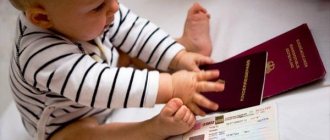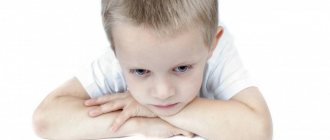Adoption is becoming an increasingly popular practice in our country. According to statistics from the last 4 years, the number of children in need of new families has decreased from 119 thousand to 60. The data seems comforting if you believe the media, but little is said about exactly how adopted children live and whether they know about their status . I wondered how grown-up girls feel once they find out that they are adopted.
Maria, 25 years old
I found out that my parents weren't really mine when I was only 8 years old. I believe that my age was too young for such confessions. At that time, I didn’t yet know what “adopt” meant, but my mother found a brilliant way out of the situation: she said that she and my father chose me because I was special to them. From then on, I felt truly unusual, walking around school and telling my friends that I was the chosen one.
Of course, over the years, I understood more and more what it meant to be a foster child, and most importantly, why it happened to me. I haven’t had any difficulties with my current family, and I don’t know anything about my biological parents and don’t want to know. I still believe that the decision my parents made was right, and the way my mother chose to tell me the truth was the best for the child.
Registration of adoptive parents as parents of an adopted child
To avoid such negative consequences, simply, in the process of preparing documents for adoption, immediately write a statement about the advisability of making changes to the birth registration book about the parents of the child being adopted - to record the adoptive parents as parents. If this application is granted, the adoptive parents will appear as parents in all registration documents, and the child will be issued a new birth certificate.
It is worth noting that the court does not always automatically make positive decisions on changing data about the parents - the court makes this decision solely from the point of view of the benefit for the adopted child. Sometimes, when granting a petition for adoption, the court refuses to make a decision on the need to register the adoptive parents as parents.
Alexandra, 20 years old
I always knew that I was adopted, even before I really understood what it meant. My parents never hid this fact and said that my biological mother and father simply loved me very much and wanted a better life for their child. That's why they put me in the hands of other people who were ready to give me the best, including boundless love.
I always looked at my situation as positive and soon forgot that I was adopted, and this family was not mine at all. As I got older, I first began to think that my biological parents might have abandoned me because I was an unwanted child, or simply because I was born a girl. But these feelings quickly dissolved because my family surrounded me with care, and I found it pointless to think about what could have been and what could not have been. The main thing is that they want me here, I am a member of the family, an only child, and I love my “new” parents.
Our friends often say that I look like my mother, and I am very pleased to hear this. Sometimes it seems to me that this is true.
Legal status of the adoptive parent and problems of disclosing the secret of adoption
Despite the fact that the legal status of the adoptive parents (their rights and obligations in relation to the adopted child) is no different from the legal status of the biological parents, thanks to such double entry, sooner or later the adoption certificate will catch the eye of a stranger and he will understand that “his current parents "are not his biological parents. As a result, a moment may come when a child raised in a “foster family” from infancy suddenly learns that his parents are not parents at all. This news in itself can cause psychological trauma. And if you imagine that someone can present this information to a child in a distorted way (after all, the certificate will have to be shown in kindergarten, and at school, and in the clinic, etc.), this psychological trauma can be very serious. Yes, disclosing the secret of adoption is punishable by law, will it become easier for all those “victims” of someone’s negligence, will the culprit be punished?
This problem can be especially acute for children in their “difficult” adolescence – how will a teenager, who wants to show that he is already an adult and completely independent, react to “shocking” news? The answer to this question is individual in each specific case, but very often such news was the first step in breaking the family relationship between the adopted child and members of the adoptive family. This news can be no less problematic in those families where, in addition to the adopted child, there is a natural child or children - in this case, their own “conflicts of interest” may arise.
Elona, 21 years old
I always knew that I was adopted. I was adopted when I was three years old, then, of course, I could not understand anything, but I often saw my mother reading books about adoption with a variety of titles on this topic, and as I got older, doubts crept into my head . My parents did not hide the truth from me.
I didn’t feel anything special: no resentment, no anger, no discomfort. I just accepted it as a fact, I don’t know why the suffering of an adopted child passed me by, apparently, it’s different for everyone. I tried several times to find my biological parents after I turned 18, but I only managed to find out the name of my mother, or more accurately, the woman who gave birth to me. I was able to find her address and sent her a handwritten letter. I wrote something about how I was her biological daughter and that I wanted to know a little about her, but she refused to meet with me. At that moment I felt pain for the first time. I felt like I was betrayed.
I entered the university in St. Petersburg and left my hometown. I never felt much affection for my adoptive parents. As a teenager, I kept wondering why they adopted me in the first place, and whether my mother had found the answer in her smart books. I don’t consider myself an orphan, but already at the age of 18 I cut off all emotional ties with my parents and began to live the way I want.
Yes, I still call my parents “mom” and “dad”, and they sometimes help financially, but we rarely talk heart to heart, we don’t meet on family holidays and weekends, we only send each other SMS with congratulations, nothing more.
Today I feel fine. It seems to me that in life I am a loner, so I don’t have problems with communication and intimacy. I don’t want to have children, much less adopt them, but if I found myself in such a situation, I would not refuse my biological son or daughter to at least get to know each other, for the sake of childish curiosity or gestalt.
“How to talk to mom? I'm so afraid of her"
I didn’t dare talk to dad then. Nowadays many adults in a similar situation write to me. A woman in her late 40s once asked me: “How can I talk to my mother? I'm so afraid of her." Once you know, there's only one last step left. But you don't know how to do it. It's a big pain. I myself have been going towards this for four years.
There was a time when I didn’t think about it: there were a lot of other tasks, problems, I was “living life.” But periodically it came in waves. Before my 29th birthday, I felt an urgent need to talk to my dad: I realized that if I didn’t do this, I would die.
Daria Emelyanova. Photo: from the family archive
At that moment, I accidentally (although I believe that all accidents are not accidental at all) met one girl, Olga . I followed her on Instagram. It turned out that she also found out that she was adopted and was looking for her birth mother. I saw her post: “If you have the same situation, write.” I wrote, Olya sent her phone number and we called. This conversation became an impetus, a “magic kick” that gave me strength to talk with my dad.
I called my dad and said that I’ve known everything for a long time, it’s hard for me, I need the truth. He didn’t tell me anything over the phone, he said: “Come, we’ll talk.” I came to our town after some time, when I could. We sat and watched TV for a long time. Silently. In the end, I said: “Dad, you and I can sit like this until the morning, but I came on business.”
The conversation was completely uninformative: dad is a very reserved person, all to himself.
- Well, yes, we got you.
- Why did they leave me?
- Why do they leave everyone?
Zero information, in general. But the importance of the conversation was this: when I heard the truth from my father’s lips, the final realization came to me.
Article on the topic
“It’s a pity for the children, but it’s a pity for the parents.” Adoptive mothers about the Ministry of Education project. To be honest, I was stunned. Still, I hoped until the last moment that he would say: “This is all fiction. Small town, everyone gossips.” Then, analyzing, I realized that, having learned the truth, I could not live as before. This is a way out of your comfort zone. This is a new level: you need to do something, strain yourself, solve a new problem that you didn’t want to solve. But it was no longer possible to sit idly by after this: Olya was interested in how and what. I couldn’t tell her: “Nothing, I’m sitting with my hands folded.”
Olya advised me on the next steps: how to write applications, where to send them, so that they would send me a second adoption certificate. I asked my dad, he wrote statements. The certificate showed my real name and my real birthday. When I saw this, I was shocked, of course. It turns out they named me Vera. And I was born on August 14th.
I’m taking steps to find my biological parents, I want to at least see who I look like. This may seem like a small thing to some, but for me it is an unprecedented luxury: to see relatives by blood.
Everything is fine with dad. It seems to me that he is afraid that, God forbid, I will forget him. But I'm not going to do that. I have no complaints against anyone: neither to the people who raised me, nor to the people who left me in the maternity hospital.
View this post on Instagram
‼️Adoption‼️My adoptive parents I write this because I know how difficult it is in such a situation, especially one... If I help someone on earth with my support, example or advice, then I will be happy! I am supported by the priceless @olgashestakova19, happy holiday to you, dear, you are a wonderful mother! Mother. Who is she? What if these are two different people? Is she the one who gave birth to you or the one who raised you? Now for me, mom is my dad, for me he is both mom and dad rolled into one. He raised me almost from birth and will never stop being my dad! And most importantly, he supports me in my new story, which is called “Adoption”, helps to establish the real date of birth and find a biological mother!! ️His wife, my mother, who raised me, unfortunately has already left, but I will not forget her either. Courageous people. There were all sorts of things, good and bad, but they tried as best they could and loved me and raised me. And someone gave me life, but left me in the maternity hospital in the city of Tver, but! This is a completely different story! To remain silent, to hide, to not notice the “elephant in a china shop” is painful, it hurts everyone. I'm not scared or ashamed to talk about it, this is life and this is how it is... Don't be silent!! ️ Happy holiday to all mothers, wisdom and strength to you! #life #adoption #spb #family @anastasiababochka, look, I’m like a real girl! #mother's day #matherday
Publication from PoyuPishu Montessori (@_dashaemelyanova_) November 25, 2018 at 2:38 PST
Inga, 29 years old
I was adopted immediately after birth, and all my life I knew that I was adopted. My parents were very wise in their approach to parenting, so my understanding of what it means to be an adopted child turned into a lifelong quest.
From early childhood, my parents tried to explain to me what it means to adopt someone, for what reasons this is done, and what a real family is. I was always loved and carried in their arms, and in moments of sadness or doubts about the fact that I was somehow different, unwanted, ugly or wretched, so my real parents abandoned me, without even knowing what I could become, my my adoptive mother and father consoled me and convinced me that people who cannot call me their daughter are the most unfortunate in the world, and I am the miracle for which they have been praying for so long. In other words, my childhood could not have been more prosperous. I am very grateful to my parents for the way they raised me, because being a foster parent is a big responsibility.
I didn’t know what it meant to “love a step-child as your own” until my mother explained it to me.
But I was never called “step,” “adopted,” or “alien.”
Ekaterina, 24 years old
My adoptive parents wanted my birth mother to be part of the family because they were so grateful for the gift she brought. She was invited to birthdays, New Year's, and once she even spent six months with us - simply because she had nowhere to live. Afterwards she moved to another city, and I continued to see her for another year. Once, for my 17th birthday, she invited me to spend the weekend with her, and I ended up staying with her for the whole summer. At first everything was fine, but soon I began to realize that this was too much. She wanted to be a cool birth mother, but she had serious problems that I didn't realize until I was alone with her.
She couldn't maintain a balance between wanting to be my friend and a real mother. She tried to establish some rules, but I contradicted her simply because she was never my mother - why should she suddenly have power?
While I was visiting her, I managed to meet a guy, and we began a romantic relationship, so I decided to stay with “mom” longer than the summer. This became the catalyst for the problems. My biological mother was incredibly jealous of my boyfriend and said that I spent too much time with him. And everything would have been fine, they would have quarreled and stopped, but her envy became frightening. She ended up kicking me out of the house, in a city where I knew no one but her and this guy. He invited me to stay with him, and I had nowhere to go, and I decided that it would be much nicer than staying with my crazy mother.
When his family accepted me, my mother began to follow us and acted like a real stalker. My boyfriend's parents tried to call the police, but all reports were rejected. She ended up calling my adoptive parents, insulting them and saying terrible things like:
Giving you my child was the worst idea of my life. Look what she has become: a loser, an ugly girl, a whore. She has no friends. You spoiled my child!
My parents blocked her numbers and I did the same. I was very sad, so after a couple of weeks I returned home to my parents. I found out that after I returned, my biological mother harassed my boyfriend and his family too.
After many years, my fear that she would do something crazy went away. One day she called me and asked me to forgive her for everything she had done. But I'm not ready to forgive her. This woman disgusts me, and I'm glad she abandoned me when I was still a baby.
How to Find out if a Child is Adopted
If you previously received a conclusion about the possibility of being a guardian or adoptive parent and it is still valid, you do not need to receive a new conclusion.
The judge is required to consider your application within 2 months from the date of its submission. The application is considered behind closed doors. The adoptive parent, a representative of the guardianship and trusteeship authority, the prosecutor, and the child himself, if he is over 14 years old, must be present at the court hearing. Other interested parties, such as the child's parent, may also be present.
5. How to obtain permission to adopt? (read more…)
Anna, 30 years old
My parents decided to come out when I was already 28 years old. They didn’t plan to do this, but according to my father, my biological mother began looking for me and leaving anonymous messages, and my parents did not want me to find out about everything when some woman knocked on our door and said: “Hello, I'm your real mom! Let's hug." They were silent because they wanted to protect me from stress and psychological trauma, and they were sure that they were much more parents for me than those who abandoned me at birth. Can't argue with that. BUT!
To be honest, I was just shocked! This news turned my world upside down. It seemed to me that if I had known earlier, everything would have been different. Besides, I never suspected that I could be a stepchild. I have a younger sister who was lucky enough not to be adopted, and she is very similar to me, so I was sure that we were one family.
It took me a while to come to my senses and realize what had happened. I still don't know how I really feel about this. About 20 years ago I could have said that I was betrayed, deceived, but I’m already 30, I’m not supposed to be dramatic. On the one hand, I'm devastated, but on the other hand, I'm old enough not to worry about such things. I'm married, although we don't have children of our own yet, which means I shouldn't be so emotionally dependent on my parents. But still, this news was hard for me, and if I am ever faced with adoption, I will think very carefully about how not to destroy my child’s world with a confession. By the way, the biological mother never showed up.
Alisa, 22 years old
My situation is extremely ambiguous, because I was adopted at the age of 11, and I perfectly understood what was happening around me. Before that, I lived in a shelter for as long as I can remember, but no one told me how I got there. It was customary for us to compose all sorts of fairy tales, but some believed and others did not. I didn’t believe it. I met my biological mother a couple of times, so I never had romantic fantasies about astronaut parents who travel into space on rockets, and you can’t go there with children, so they left me in the care of the state and probably write me postcards, they just don’t they arrive - there is no mail in space.
My birth mother was a drug addict, so our family communication did not last long.
Of course, I hoped that one day she would take me, but now I understand that no one would have allowed her, and thank God. Next on the schedule was the biological dad, with whom we had a good time. He even asked me if I wanted to go to school or to the water park with him. I was 5 years old then and, of course, I wanted to go to a water park, although I didn’t even know what it was. My dad took me to work with him, let me use his computer, and then he let me run around in the park completely unsupervised, and in the end some man brought me back with a broken knee. Fun time! Dad was very caring and sweet, but it turned out that he had problems with alcohol and pain pills.
After my real parents' attempts to make me happy failed, I remained in the orphanage for another five and a half years, until I was taken to a new family.
Life has thrown me for a loop, but I believe that it was meant to be. If all this had not happened to me, I would not have learned to overcome difficulties and would not have been able to adapt so quickly to a new social environment. I was allowed to choose a new name for myself if I wanted, and I thought it was a really cool idea at the time. I wanted to be Alice because the only book I read at the orphanage was Alice in Wonderland.
Another 11 years have passed since then, and I have never regretted that I ended up in a family with strangers. They turned out to be very caring and sweet and finally took me to the water park. I am studying at the university at the Faculty of Psychology, I want to work with difficult children, maybe I can help them thanks to my experience.
“Everyone says you’re not my own”: how the state protects the secret of adoption from the adopted people themselves
Chelyabinsk resident Olga Ledeshkova spent her entire life trying to find out who her biological parents were. Several years ago she was diagnosed with a genetic disease, and information about relatives became necessary. The registry office, archives and courts refused Ledeshkova under the pretext of lack of consent of the biological parent to reveal the secret. After three years of litigation, Ledeshkova found out her mother’s name and is now looking for her father. Sofya Volyanova tells her story.
Share on social networks:
“Do you know that you are adopted?”
In the winter of 1987 in Chelyabinsk, seven-year-old Olga Shelekhova (maiden name Ledeshkova - note K29) was returning home from school with a classmate. “Do you know that you are adopted?” a friend suddenly asked. “Everyone says you are not related to your parents.” At home, Olga asked her mother if the school rumors were true. The parents denied everything, but the girl still had doubts. She later noticed that there were no photographs of her as a baby at home. In the first photo in the family archive, one-and-a-half-year-old Olga is sitting on a high chair, with her grandmother standing next to her. She never found any earlier photographs.
Photo: personal archive of Olga Ledeshkova
In 2009, Ledeshkova was already sure that she was adopted: she went to the maternity hospital, where, according to family legend, her mother gave birth. They reported that newborns with that name were never registered at the institution, and on July 1, 1980 - on Olga’s birthday indicated in the documents - not a single patient gave birth. In the same year, a woman turned to the Chelyabinsk city archive with a request to provide information about her biological parents, but the archive refused - they promised to issue the papers only if Ledeshkova received the consent of her adoptive parents.
A year later, the archive again refused, and Olga sent a request to the only maternity hospital in the city of Zlatoust, where she lived with her parents until she was 17 years old. But there were no documents for Olga Shelekhova there either.
Ledeshkova decided not to think about her adoption anymore, but in 2014 her health condition deteriorated sharply. In 2015, 35-year-old Ledeshkova, after giving birth to her third child, nevertheless turned to doctors: “When I was pregnant, my head began to shake very much. I walked around and felt ashamed, tried to stop it, but I couldn’t do anything about it. I was diagnosed with “dystonic tremor” (Ledeshkova was diagnosed with a number of genetically determined diseases, including dystonia and dystonic tremor - note K29) and asked if anyone in my family had such a disease. What should I answer if I don’t know any of my relatives? Well, [the doctors] wrote to me that my life history is unknown, but most likely it is a hereditary disease. This pushed me [again] to search for relatives.”
Soon Olga was given another diagnosis - open internal hydrocephalus (a disease in which a large amount of cerebrospinal fluid accumulates in the brain - approx. K29). Doctors asked if her mother drank alcohol during pregnancy, but Olga could not answer any questions about her relatives. Information about them would help a woman learn how similar illnesses have affected her family, adjust her treatment plan, and predict what health problems will appear in her children. In March 2021, Ledeshkova decided to turn to K29 lawyers, whom she was advised by the creator of the “Adult Adopted” community, Marina Trubitskaya.
Ledeshkova collision
By January 2021, Ledeshkova collected documents that could help find out the names of her biological parents. She received the decision of the executive committee of the Leninsky district executive committee of Zlatoust on adoption after “four requests and a personal visit to the archive with the scandal.” The decision included her original birth certificate number. Olga’s adoptive father helped her obtain an adoption certificate: he personally wrote an application to the registry office with a request to issue the document. He also said that Olga was actually born on June 15, and not on July 1, as was indicated in the documents after the adoption. Then Ledeshkova found out her real name - Svetlana Pavlovna Platonova. But this document also did not contain information about biological parents. “Then I needed consent from my adoptive parents [to reveal the secret of adoption], I barely persuaded them. This, of course, is terrible - to lead your parents to the slaughter so that they agree,” recalls Ledeshkova.
The consent of the adoptive parents is a key point in such stories. If there is consent, the names of the biological parents must be disclosed without legal proceedings. But in the case of Ledeshkova, a legal conflict arose: the registry office of the city of Zlatoust perceived the secrecy of adoption in Russia as absolute, explains Olga’s representative in court, senior lawyer of K29 Maxim Olenichev. The registry office employees believed that for any disclosure of information about Olga’s adoption they would be prosecuted. This is not so: according to the law “On Acts of Civil Status”, the secret of adoption cannot be disclosed only without the consent of the adoptive parents.
Photo: Anastasia Kurilova/Kommersant
“The mechanism for protecting the secrets of adoption does not imply liability if there is the will of the adoptive parent to disclose the secret. On the contrary, the consent of the adoptive parents is the only circumstance indicating the need for disclosure,” explains Olenichev. Olga complained about the registry office’s refusal to the prosecutor’s office, but the department decided not to interfere and stated that information about the biological mother is personal data that can only be obtained with her consent. Olga, of course, could not obtain such consent.
From April 2021 to March 2021, Olga Ledeshkova and Maxim Olenichev passed through courts of three instances: Zlatoust City Court, Chelyabinsk Regional Court and the Judicial Collegium for Administrative Cases of the Chelyabinsk Regional Court. All judges came to the same conclusion: the rights of the biological mother would be violated if the registry office disclosed her personal data.
Ledeshkova emphasizes that from the very beginning they explained to the judges that disclosing the secret of adoption was necessary for medical reasons. “To reveal the genetics of my family, what’s going on there, to prevent marriages with close relatives, [to understand what] diseases can be passed on to offspring. “I am a carrier of the gene for Huntington’s chorea (a genetic disease of the nervous system that progresses to erratic, jerky, uncontrolled movements and mental disorders - note K29), and it can be passed on [to children].”
After the decision of the regional court, Olenichev filed a cassation appeal to the Supreme Court, where it was accepted for consideration, although, according to him, at this stage most complaints are eliminated. The case was sent for review to the Zlatoust City Court, which in May 2021 decided to satisfy Ledeshkova’s claim and ordered the Zlatoust Civil Registry Office to give her information. The court considered that the information was needed to find out the genetic history of the family, assess the risk of hereditary diseases in Olga’s children and the risk of marriage with close relatives. On July 15, 2021, Olga received a certificate from the registry office with information about her biological mother.
“The Supreme Court for the first time formulated a legal position: “Provided that the adopted person is aware of the fact of his adoption, such a person cannot be refused to provide information about his origin.” We have achieved a precedent. But there are still cases when, on far-fetched grounds, courts refuse to satisfy such claims. It’s the inertia of thinking,” says Olenichev.
The Supreme Court questioned whether disclosing information about the birth mother would be an invasion of her privacy. According to the Supreme Court, the courts of previous instances were unable to explain exactly what rights of a woman would be violated in this case.
Meeting the mother and searching for the father
Ledeshkova met with her biological mother even before the registry office finally released the information. She turned to the “Let Them Talk” program - the program’s producers found two women, one of whom could be Olga’s mother. The results of the DNA analysis showed that the DNA of Olga and one of the women found by the program matched. “The mother was not checked [by doctors], [in her youth] she drank, and even now she may go into binge drinking. After the program, she said: “No, I’m healthy, everything is fine with me.” She didn’t even talk to me and ran away,” recalls Olga
Lyubov, Olga’s biological mother claims that the woman inherited diseases from her father. On “Let Them Talk,” Olga hoped to find him too—two potential fathers took a DNA test, but the results were negative. One of them was listed in the “father” column of Olga’s birth certificate. Lyubov explains that she became pregnant at the age of 15 and had several partners.
Ledeshkova’s biological mother Lyubov Photo: personal archive of Olga Ledeshkova
Vladimir Kraft, potential father of Ledeshkova Photo: personal archive of Olga Ledeshkova
After participating in the program, Olga met her half-brother and sister: 34-year-old Denis and 30-year-old Svetlana. Lyubov claimed that all three children had different fathers.
“Two months have passed since the transfer, probably. I keep asking: “Who is my father?” She freaks out and says: “Go to Kopeisk, my ex-husband’s relatives live there - Vladimir Kraft (father of Olga’s brother, Denis), maybe they will tell you something. And at the same time she says that my brother and I are not related. But I look more like this man [Kraft] than my brother himself,” says Olga. Olga never found Kraft: he hanged himself several years ago. But the woman still managed to contact his relatives - his sister and mother - who now live in Germany. They said that they also doubted their relationship with Olga’s brother. Kraft's relatives agreed to undergo a DNA test. Denis and Svetlana also want to use a test to check whether they really are not Kraft’s own children. The test hasn't been done yet.
Lyubov, having learned about the idea of testing, left for the village of Ust-Pit, where more than 30 years ago she married Denis’s father. None of Lyubov’s children know why she went there.
“Other adoptive parents receive such data without problems”
According to lawyer Max Olenichev, there are no statistics on such cases in Russia. Marina Trubitskaya, the founder of the “Adult Adopted” association, does not know about such statistics: “Theoretically, Olga Ledeshkova should not have had a trial if everything in her Chelyabinsk region had not suddenly become so stubborn. For the adoptive parents themselves, there is no secret about the data of the biological parents, and her father supported her in the desire to find out everything, he simply forgot that he had once seen it in the documents. Other adoptive parents receive such data without any problems, and they are not told about any personal data.”
There are only a few mentions of such cases on the Internet. At the beginning of 2021, LJ user miss_elena said that she was suing the registry office, which refused to provide information about her biological parents. In June 2021, Stavropol resident Kirill Belousov appealed a similar refusal by the Civil Registry Office. In 2021, a resident of Usolye-Sibirskoye filed a lawsuit in the Kirovsky District Court of Irkutsk to find out the secret of his birth. St. Petersburg resident Olga Shestakova also tried for a long time to find out information about her biological parents, as a result, an unknown person sent her photocopies of the original documents - that’s how she met her mother.
St. Petersburg resident Olga Shestakova also tried for several years to find out the name of her biological mother. She talks about the complexity of her case and why it is necessary to change the legislation in the field of adoption.
Marina Trubitskaya explains that the difficulty and time of searching for biological relatives in Russia depends on whether the adoptive parents are alive, what they remember and are ready to tell, whether the adopted person has the courage to talk to them about this topic: “They can deceive that they don’t know anything or that nothing was known about the mother. Sometimes it's true. Sometimes it was an illegal adoption and there really are no traces. They can tell you everything and then someone immediately finds the birth parents on the Internet. For some, the blood parents themselves are looking for them, but for others, they left a false name on the refusal form and there are no traces. Someone [searches] through private detectives, someone tries through DNA, but for this [in Russia] there is no database of those who have passed.”
Foreign practice
In European countries there is still no consensus on revealing the secret of adoption, explains K29 lawyer Maxim Olenichev. The European Court of Human Rights proceeds from national legislation. According to Olenichev, the practice of the ECHR in this area has not yet been formed, but the court seeks to establish a balance between the rights of interested parties - biological parents and the child given up for adoption.
In the United States, citizens also have to fight in courts for the right to reveal the secret of their birth. It all depends on how the adoption procedure took place: if it was open (when biological and adoptive parents communicate with each other and exchange information about the child - note K29), then there are no problems with obtaining information. But in the case of closed adoption (it is now rather rare, this type is more often used in the case of adoption of children from other countries or if a family adopts a child through an agency - note K29), information about biological parents is considered classified and it is very difficult to gain access to it.
Self told the story of Utah resident Nancy, who wanted to know the names of her parents and get a family medical history. Throughout her life, doctors incorrectly diagnosed Nancy’s illnesses: shortly after birth, she was diagnosed with the hereditary disease neurofibromatosis, characterized by the appearance of many tumors. Because of this, the girl was not accepted into foster families, and she lived in medical shelters for six years. She was adopted only after doctors refuted this diagnosis. Doctors spent years looking for the reasons for her poor health and illnesses, which was difficult to do without relying on family medical history. During pregnancy, she was diagnosed with Klippel-Trenaunay-Weber syndrome (the disorder has characteristic features in the form of a classic triad: capillary hemangioma, called port-wine stain, hypertrophy of soft tissues and bones, venous malformations - note K29) Then Nancy realized that she wanted to study medical the history of the biological family and a few years later achieved the disclosure of the secret of adoption through the courts.
In June of this year, Newsday wrote about the case of Larry Dell from New York State, who 11 years ago learned that he was a foster child. Dell's daughter found documents about this in the house of his deceased mother. State authorities have not revealed the secret of adoption since 1938 - and over the past ten years, Dell has been unable to find out anything about his biological relatives.
Share on social networks:
TEXT: Sofya Volyanova







